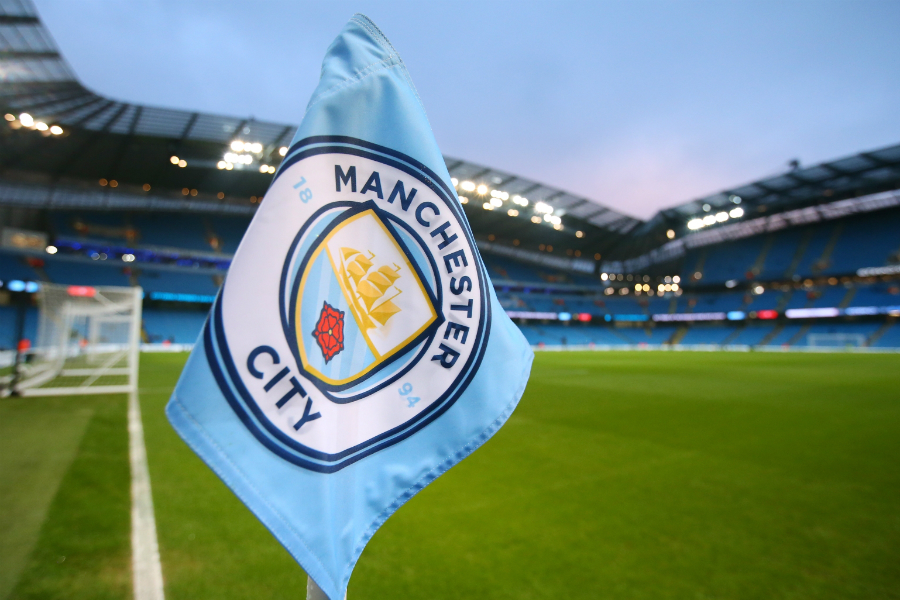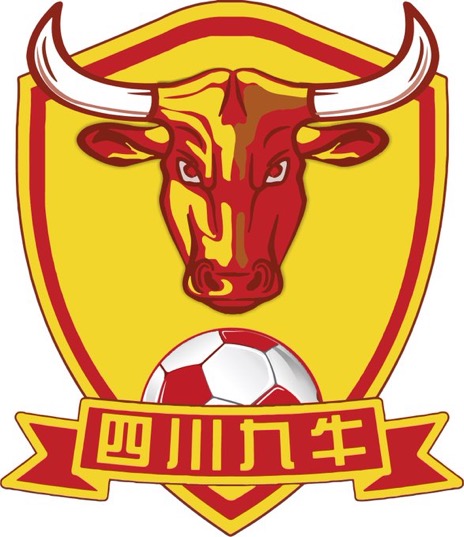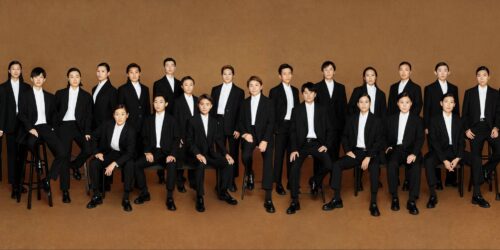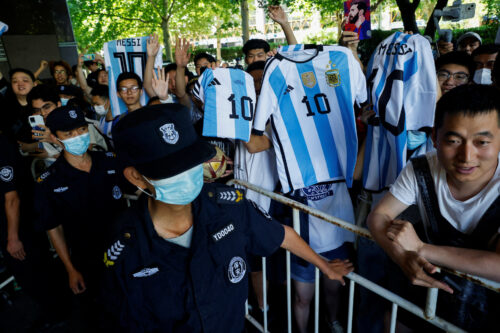Manchester City makes official foray into Chinese football

The China Sports Column is a The China Project weekly feature in which China Sports Insider Mark Dreyer looks at the week that was in the China sports world.
In a move that’s been in the works for several years, Manchester City football club — or, more precisely, its parent company City Football Group (CFG) — now has an official foothold in China.
But despite headlines telling that you that the club’s “blue wave” will be washing over the Middle Kingdom, this is a deal that appears to be a little more complex.
At a press conference in Chengdu this week, Manchester City CEO Ferran Soriano announced the deal to purchase third-tier Chinese club Sichuan Jiuniu (四川九牛) FC alongside the club’s two other partners in this joint venture, humanoid robot firm UBTECH and sports investment fund China Sports Capital.
There had been rumors that CFG would add a Chinese club to its network of franchises since at least 2015 — back when the Chinese football industry had truly been given the green light: President Xi Jinping visited not Manchester United, but City, during a state visit to the UK, and, just months later, China Media Capital led a $400 million investment into CFG.
Various Chinese Super League clubs were mooted to be under consideration by CFG, and Manchester City opened a rep office in Shanghai in 2016, the year the club also picked up Shenzhen-based UBTECH as its official robot partner.
Then — as the proverbial traffic lights promptly turned to red under orders from various government departments — everything went quiet on the football front.
But by last summer, City officials had identified League Two club Sichuan Jiuniu as their intended target and, as the orange lights started to flicker, paid the club a visit. This week, the transfer in ownership was confirmed.
Despite the appearances, though, Man City are not the leading partner here.
Sources say the vast majority of the money has been put up by UBTECH, who take a controlling 51% stake in the club, while CFG receives as much as 40% for precisely zero money, though of course bring plenty to the table in terms footballing know-how and global network.
Chengdu, it turns out, is keen to develop its robotics industry, and with UBTECH looking to build a new factory there, it doesn’t take a genius to figure out that any advantages it may secure — tax breaks, for example — would more than cover the sums needed to buy a third-tier club recently promoted from the amateur football ranks.
You may have read — since reporters like nothing better than to quote press releases (or cite incorrect facts from Wikipedia if they are extra diligent) — that Sichuan Jiuniu plays in a 27,000-seater stadium. That’s true, but it’s also typically less than a quarter full for home games.
A sleeping giant this is not.
It will also be fascinating to see how Scott Munn, fresh from success as CEO of Melbourne City in Australia — another club in the CFG family — fares in his new role in China. Melbourne have steadily improved their league results since CFG’s takeover in 2014 — and won the FFA Cup in 2016 — but he’ll likely find Chinese football to be a whole new ball game.
That’s not to say it’s a bad deal.
CFG gets a significant interest in a club that could be worth something someday if its footballing franchise dream ever comes to fruition and Jiuniu rises up the ranks as China’s football industry continues to grow. Meanwhile, UBTECH leverages one of the best brands in soccer to sell its consumer-facing robots — Stormtroopers guarding the house, anyone? Truly a win-win.
While City Football Group is grabbing all the attention for investing in Chinese League Two club Sichuan Jiuniu FC, it's actually Shenzhen-based firm @UBTECHRobotics – maker of the #stormtrooper robot – which is the main backer. pic.twitter.com/SIaubnZeNY
— Mark Dreyer (@DreyerChina) February 19, 2019
But don’t expect Chinese football fans to come flocking to the club, as some have predicted. This is a long-term play, and with annual rule changes often fundamentally changing the landscape of Chinese soccer, it’s impossible to look too far ahead.
Also this week:
- Club Med’s winter sports division has had a rollercoaster week in China: fresh off news that novovirus decimated guests at the Fosun-owned group’s ski resort in Yabuli in Heilongjiang Province comes the announcement that the China Ski Academy, located an hour from downtown Beijing, will be run by Club Med and well-known instructor group Ecole du Ski Francais (ESF), with up to 10 resorts primed to open over the next year.
- Robert Kraft’s extracurricular activities wouldn’t typically get a mention in the China Sports Column, but he’s the owner of the Patriots, and has reportedly been hanging out with some Chinese ladies, so that ticks enough boxes.
The China Sports Column runs every Friday on The China Project. Follow Mark Dreyer @DreyerChina.






